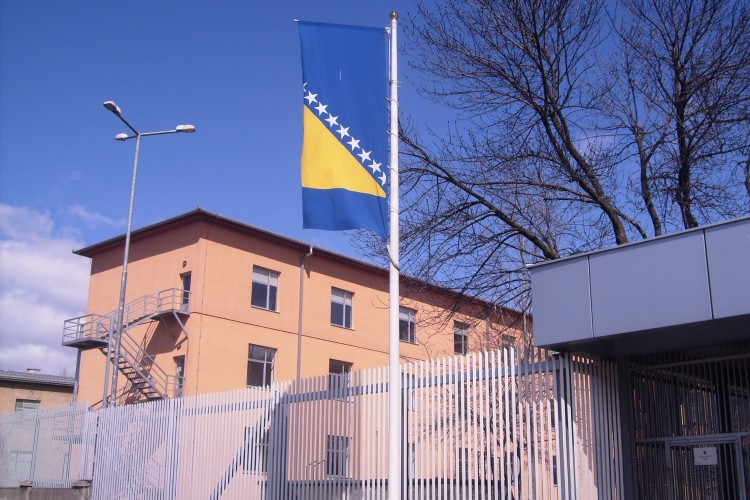
The final verdict against Ratko Mladic, the wartime commander of the Republika Srpska Army (VRS) will be handed down on June 8 this year before the International Mechanism for Criminal Courts (ICTY) in The Hague at 2:15 PM.
In 2017, the International Criminal Tribunal for the Former Yugoslavia (ICTY) sentenced Mladic to life in prison for genocide against Bosniaks in Srebrenica in the summer of 1995, persecution of Muslims and Croats throughout Bosnia and Herzegovina, terrorizing civilians during the siege of Sarajevo and taking members UNPROFOR as hostages, during the 1992-1995 war in BiH.
On 12 May 1992, Ratko Mladić was appointed Commander of the Main Staff of the army of the Serbian Republic of Bosnia and Herzegovina (“VRS”). He remained in command of the VRS Main Staff until at least 8 November 1996.
Sentenced by an ICTY Trial Chamber to life imprisonment on 22 November 2017.
On 18 December 2017, Ratko Mladić filed a motion seeking an extension of time to file his notice of appeal against the ICTY Trial Judgment.
On 19 December 2017, the President of the Mechanism assigned a bench of five judges to this case before the Appeals Chamber. On 21 December 2017, the pre-appeal judge partly granted the motion for an extension of time and ordered that any notices of appeal in this case be filed within 120 days of the issuance of the ICTY Trial Judgement. On 22 March 2018 both parties filed their notices of appeal. Following a further extension of time granted on 22 May 2018 for the filing of the appellant’s and respondent’s briefs, the parties filed confidentially their respective appellant’s briefs on 6 August 2018. On 7 August 2018 and 11 September 2018, respectively, the Prosecution and Mladić filed the public redacted versions of their appellants’ briefs.
On 18 June 2018, Mladić requested the disqualification of Judges Meron, Agius, and Liu from the appeals bench in this case on the basis of actual or apparent bias. On 20 June 2018, the President of the Mechanism referred the matter to Judge Jean-Claude Antonetti. On 3 September 2018, Judge Antonetti upheld Mladić’s requests and, on 4 September 2018, assigned Judges Mparany Mamy Richard Rajohnson, Gberdao Gustave Kam, and Elizabeth Ibanda-Nahamya to replace Judges Meron, Agius, and Liu on the appeals bench in this case. On 12 September 2018, Judge Rajohnson requested to withdraw from the bench in this case and, 16 September 2018, he was replaced with Judge Aminatta Lois Runeni N’gum.
On 12 September 2018, after Judge Nyambe’s election as the Presiding Judge in this case, she was designated as the Pre-Appeal Judge. On 14 November 2018, both parties filed their respective response briefs and on 29 November 2018, their respective reply briefs.
In 2017, the Trial Chamber of the Hague Tribunal determined that Mladic participated in four joint criminal enterprises (JCE). The first comprehensive JCE aimed to permanently remove Bosniaks and Croats from Bosnia and Herzegovina (BiH) by committing crimes, including genocide, extermination, murder, inhumane acts of forcible transfer, and deportation.
In this regard, we highlight several Trial Chamber findings establishing Mladic’s responsibility to spread propaganda against Bosniaks and Croats, as well as the active role he had in influencing the political decisions of the RS leadership.
During the trial, the defense claimed that Mladic was excluded from political decision-making, that he did not have the right to vote in the RS National Assembly and attended only some sessions of the Assembly, thus seeking to reduce his responsibility for planning war crimes, as well as the adoption of the strategic goals of the RS, which were their foundation.
Furthermore, the defense stated that Mladic was not a member of the RS Supreme Command and that he could attend its meetings only by invitation and without voting capacity.
During the trial of Ratko Mladic, the Prosecution presented a number of pieces of evidence, which the Trial Chamber accepted, and they are related to the active influence that Mladic had on political processes. The verdict repeatedly cites excerpts from Mladic’s speech of May 12th, 1992 in the RS National Assembly as evidence of his understanding of the consequences that can result from the RS’s strategic goals.
“Therefore, we cannot cleanse or have a sieve to achieve for only Serbs to remain or for Serbs to perish and for the others to leave. Well, that will not happen, I don’t know how Mr. Krajisnik and Mr. Karadzic will explain that to the world. That is genocide, ” Mladic said on that occasion.
The Chamber found that between May 12th, 1992 and April 16th, 1995, Mladic continuously pointed out that he had no tendency to interfere in political matters and on several occasions refused to make a decision without consulting the Bosnian Serb political leadership. But, the Chamber concluded that he actively participated in policy discussions during the sessions and meetings of the Bosnian Serb Assembly between May 12th, 1992 and April 16th, 1995 with members of the RS government.
Mladic also discussed the RS’s strategic goals at several meetings with senior political individuals and representatives of the international community and expressed his commitment to them. In this regard, the Chamber established that Mladic strongly opposed the Vance-Owen plan during the Bosnian Serb Assembly meeting on May 5th and May 6th, 1993, and often suggested to Bosnian Serb politicians what position they should take during peace negotiations to achieve strategic goals.
“Mladic has insisted on several occasions that Karadzic and the political leadership should follow their originally defined strategic goals and should not make any territorial concessions so they could ensure a united Serbian state without Muslims or Croats,” it was stated in the verdict for Mladic.
Also, the Council concluded that Mladic attended and actively participated in Assembly sessions to discuss political issues, such as the definition of the six strategic objectives, peace negotiations, and territorial concessions, and also attended meetings of the Supreme Command. It was further noted that Mladic addressed these issues in detail during the Assembly session to influence the Bosnian Serb political leadership in terms of decision-making, Klix.ba writes.
E.Dz.

















